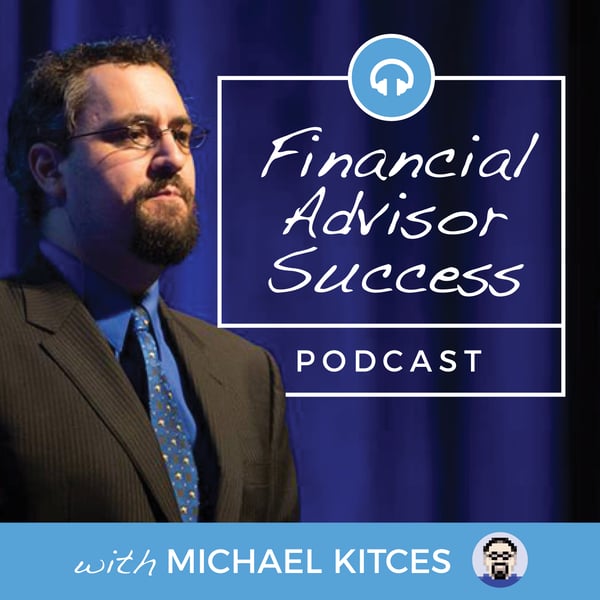Ep 014: Validating Your Advisor Value Proposition And Overcoming Imposter Syndrome With Carl Richards
Financial Advisor Success
Michael Kitces
4.8 • 696 Ratings
🗓️ 4 April 2017
⏱️ 86 minutes
🧾️ Download transcript
Summary
Carl Richards has a career that many people would be envious of. He’s worked for top-notch financial planning firms, built his own RIA, written two books and a column for The New York Times, and travels internationally to speak to crowds about financial planning. But like most of us, Carl still deals with impostor syndrome that threatens his confidence in his own success.
In this interview, Carl and I talk about why many great financial advisors constantly question whether or not they’re providing the value their clients are paying for.
We also dive into the many opportunities Carl has had throughout his career, and why he still feels today like he’s lucked into many of them. He shares some real wisdom about why advisors shouldn’t let impostor syndrome keep them from doing valued, important work for clients or seizing the chances that come their way.
Get the full show notes and transcript for this episode at: https://www.kitces.com/14
Transcript
Click on a timestamp to play from that location
| 0:00.0 | Welcome to the Financial Advisor Success Podcast, where you go behind the scenes with financial planner, speaker and consultant Michael Kitsas, to hear stories of how leading financial advisors navigated the inevitable challenges that arise on the path to success and get insight from leading industry consultants about how to break through to the |
| 0:22.1 | next level in your advisory business. And now here's your host, Michael Kitsis. Welcome, everyone. |
| 0:29.1 | Welcome to the 14th episode of the Financial Advisor Success Podcast. My guest on today's podcast is |
| 0:34.8 | Carl Richards. Some of you may already be familiar with Carl's work. |
| 0:38.1 | In addition to being a financial advisor, he's the creator of behaviorgap.com, the author of a book |
| 0:43.2 | by the same name, and a columnist for the New York Times, all where he writes about the emotional |
| 0:47.9 | and behavioral challenges that investors struggle with and how investors, often with the help |
| 0:52.1 | of a real financial advisor, can overcome them. |
| 0:55.1 | What's fascinating about Carl, though, is that despite his success, where he's now paid tens of |
| 0:59.2 | thousands of dollars to speak around the world about how to overcome the behavior gap and the |
| 1:03.6 | value of financial planning, is that he still goes through the same internal struggles that |
| 1:07.8 | all of us do in trying to internalize and get comfortable with our own |
| 1:11.6 | value, despite all external evidence to the contrary that people really are willing to pay us for |
| 1:16.7 | our expertise. In fact, the phenomenon has a name. It's called the imposter syndrome. And it's something |
| 1:22.4 | I think virtually all financial advisors experiences. We follow the path to success, growing a larger business |
| 1:28.5 | and working with more affluent clients that eventually takes almost all of us to a point |
| 1:32.6 | of saying, I can't believe how much some clients are willing to pay me for what I provide |
| 1:36.9 | them. In some case, I think it even makes us feel guilty thinking, I must be charging too much |
| 1:42.2 | and changing our own fee structure because we feel guilty |
| 1:46.3 | about what we're getting paid. And so in this episode, we talk in depth about the imposter syndrome, |
| 1:51.5 | how many of us end up self-sabotaging our career and our business success driven by the fear |
| 1:56.3 | that if we take chances, someone might realize we're just an imposter, even if we're really not. |
... |
Transcript will be available on the free plan in -2916 days. Upgrade to see the full transcript now.
Disclaimer: The podcast and artwork embedded on this page are from Michael Kitces, and are the property of its owner and not affiliated with or endorsed by Tapesearch.
Generated transcripts are the property of Michael Kitces and are distributed freely under the Fair Use doctrine. Transcripts generated by Tapesearch are not guaranteed to be accurate.
Copyright © Tapesearch 2025.

